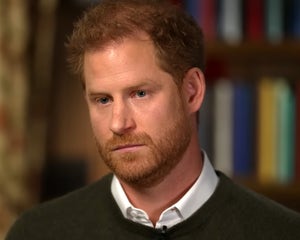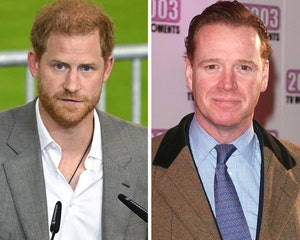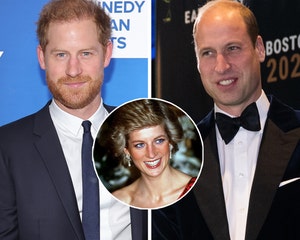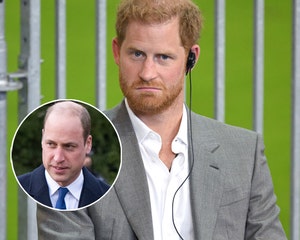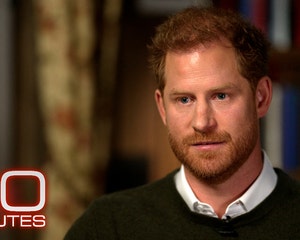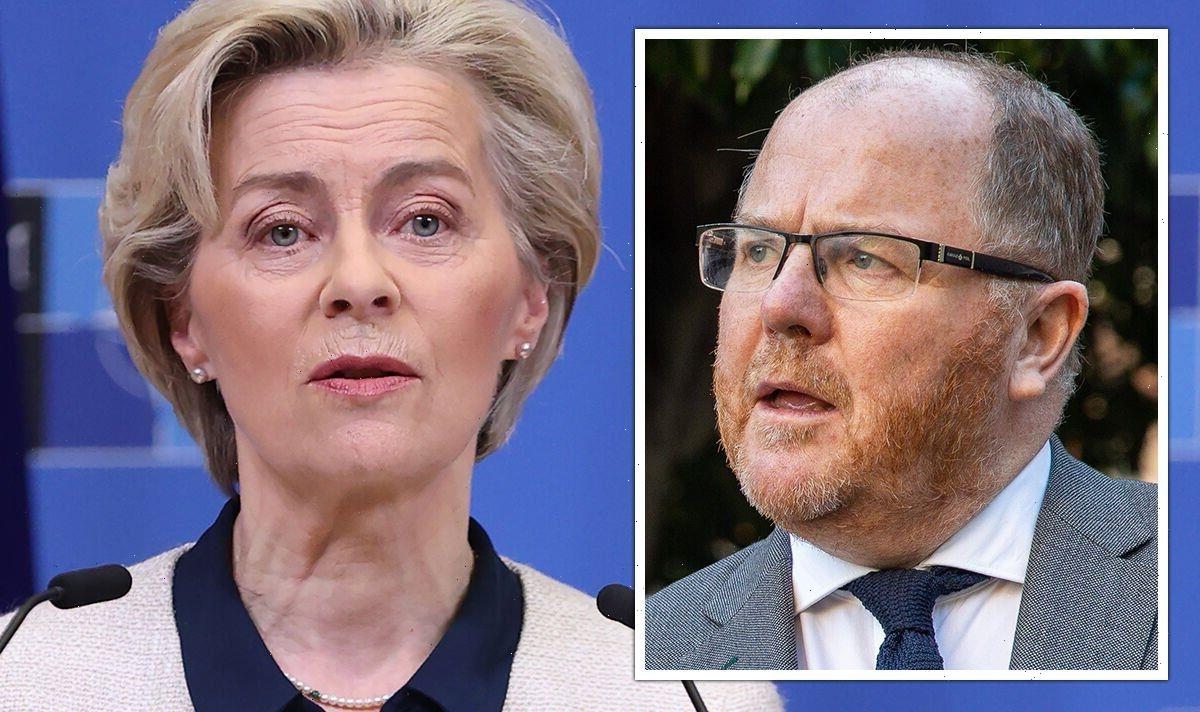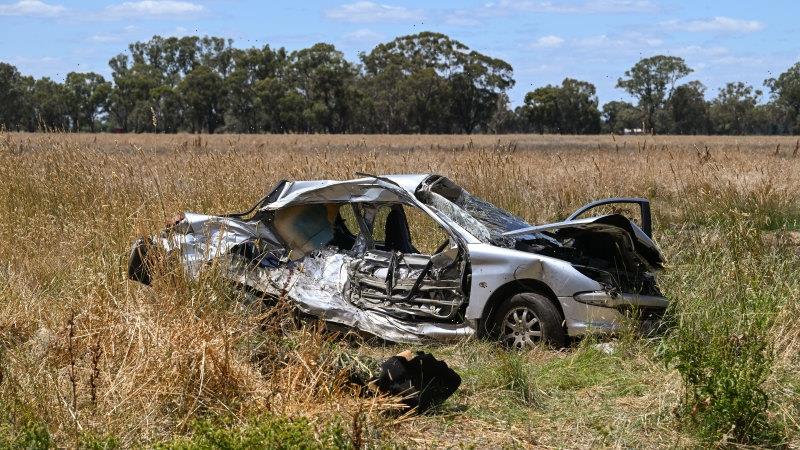The Royal "Spare" opens up about his decade in the military, how therapy changed his life and why he's going to war against the British press with his new book.
Prince Harry doesn’t hold back in his new memoir “Spare” and he hasn’t held back during any of his press appearances. That continued with Stephen Colbert on “The Late Show” Tuesday, where he got candid about everything from his time in the military to his “todger.”
As seen throughout the book and throughout his press tour in advance of its January 10 release, Harry’s main nemesis throughout his life appears to have been the British press, and the “toxic relationship” it has with his family.
Prince Harry Doesn't See Himself Returning as 'Full-Time Member of the Royal Family'
He characterized his book as “the other side of the story after 38 years.” He told Colbert that a big part of the reason he bothered to put his story into words is because “I want this to stop with me.”
Unable to render YouTube Video.
“It makes no sense for me to be able to expose and uncover all of this practice, this toxic relationship between the Palace and the press if I know that someone in my family is going to be the next target,” he argued. “Because it’s not Meghan [Markle] and I, it’s gonna be someone else.”
His accusations that the Royal family has planted stories into the press has been consistent, with him confident that it’s still happening, and has been happening even ahead of the release of this book.
One of the more sensational headlines to come out of advance leaks from “Spare” is that he has “boasted” about how many people he killed during his time in the military when he was flying Apache helicopters in Afghanistan.
Calling it “the most dangerous lie,” Harry said, “It’s really troubling and really disturbing that they can get away with it, because they have the context. It wasn’t just like, here’s one line, they have the whole section.”
Prince Harry Addresses Rumor 'Real Father' is James Hewitt
“They ripped it away and said, here it is, he’s boasting on this,” he said. “And that’s dangerous. My words are not dangerous, but the spin of my words are very dangerous.”
That context that is so important for Harry is that he was choosing to be so candid and honest about his experiences after spending two decades working alongside veterans.
“I think the most important thing is being honest and being able to give space to others to be able to share their experiences without any shame,” he said. “My whole goal, my attempt with sharing that detail is to reduce the number of suicides.”
His comments come after the USO reported just this past summer that suicide rates are at an all-time high since record-keeping began post-9/11, with some branches seeing their highest rates since World War II.
A harrowing statistic from 2021 reveals that 30,177 active duty personnel and veterans who served after 9/11 died by suicide. That’s compared to 7,057 who were killed in combat.
Prince Harry on How Princess Diana Would Feel About William Rift
One common factor is an inability by many to process or talk about the experiences they had while serving, and certainly during wartime. By normalizing talking about his experience, including that he had to kill people as part of his duties, Harry is hoping to make it easier for other veterans to do the same, to erase that stigma and shame.
He credits his own therapy — which he said the British press has characterized as him being in a “Cult of Psychotherapy” — with helping him to come to terms not only with his military experience, but also with his childhood in the spotlight and the trauma of losing his mother.
“In society at large, we are not exactly encouraged to grieve, and I think that’s a real problem. It’s seen as weakness,” Harry said. “I, though this book, have never been the most vulnerable I have ever been in my life, and I’ve never felt stronger.”
He said that he believes everyone is walking around with walls of trauma around them obscuring their view of the world, and that if therapy can help to clear any of that away, it is so valuable.
Prince Harry Defends 'Alarming' Comments About William's Baldness
Harry said that when it comes to the British press and their seemingly relentless coverage of him and his wife, he thinks that he’s seen as a “threat” to the institution, because he’s a one-time insider who has an understanding of how it all works.
He said he came to this realization when there was relentless coverage of him and Meghan during the first year of lockdown when they “said literally nothing” from their new home in California.
Comparing it to the relentless coverage of his mother, Princess Diana, Harry said, “Look, they always knew that my wife was going to leave because of the way they were abusing her. But I think the most embarrassing thing is I decided to leave with her.”
Pressed by Colbert, he also acknowledged that the audiences of this type of material also carry some culpability, even if unknowingly. “We click on photographs without really considering how that photograph was taken and the story behind that photograph; especially with someone’s kids,” he said.
Prince Harry Thought Diana Faked Death, Talks Tabloid Leaks, Fight with Will & More 60 Minutes Revelations
In the depths of the attacks on Meghan, Harry admitted that he became “obsessed,” trying to see how the tabloids — and thus the public — perceived his wife in his ongoing efforts to fix it. Realizing it had gone too far, he said that he weaned himself from this addiction.
“Now I have a digital diet,” he explained. “As much as I worry about what I put in my mouth, I worry about what I put through my eyes as well. And my life is so much better for it.”
After a lot of serious talk, Colbert awkwardly transitioned into the story in the book about Harry getting frostnip on a very intimate part of his person. Even Harry had to acknowledge the abruptness of the transition: “We’ve taken quite a leap from grief and trauma to my todger.”
What followed was a deeply awkward discussion that included an impressive list of alternate terms for a certain body part that dare not speak its real name because it makes people feel all weird and stuff. You can check out all the todger talk at the tail end of the extended interview above.
If you or someone you know is struggling with depression or has had thoughts of harming themselves or taking their own life, get help. The National Suicide Prevention Lifeline (just dial 988) provides 24/7, free, confidential support for people in distress.
Source: Read Full Article

